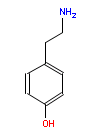 Does eating chocolate give you a headache? What about red wine? Cheese, perhaps? Yes, well read on to find out how a space-age detector developed to look for signs of life on Mars could soon become the kitchen gadget of choice for anyone who suffers a painful reaction to their food.
Does eating chocolate give you a headache? What about red wine? Cheese, perhaps? Yes, well read on to find out how a space-age detector developed to look for signs of life on Mars could soon become the kitchen gadget of choice for anyone who suffers a painful reaction to their food.
According to a paper to be published in the November 1 issue of Analytical Chemistry, researchers at the University of California Berkeley have developed a fast and inexpensive test suitable for domestic use that can spot the toxins in certain foods, particularly “aged” or fermented products, including chocolate, cheese and wine. The device could be engineered into a PDA or other handheld device for greater portability and instant access to information on any toxins found in a particular food or drink.
The test detects biogenic amines, natural toxins known to trigger headaches, cause facial flushing, lead to nausea, and raise high-blood pressure. Current tests for biogenic amines usually take hours in a specialist laboratory with bulky and expensive test equipment. With the aim of packing the test into a package small and efficient enough for a Mars landing, Richard Mathies and colleagues, have simplified the whole system down to a lab-on-a-chip device (portable microchip capillary electrophoresis) that produces results in just five minutes.
“These toxins can be a serious health problem and are more common than people think,” says study Mathies, “They are hidden in a wide variety of foods, so having a quick and convenient way to identify them will help consumers avoid them or at least limit their intake.”
The toxins, which include tyramine, histamine, and phenylethylamine, are particularly hazardous to people with reduced levels of the enzyme monoamine oxidase and to people on older antidepressant drugs which act as MAO inhibitors. For these individuals the risk of a seriously dangerous rise in blood pressure is very possible.
 “Some foods have more biogenic amines than others,” explains Mathies, “but you cannot tell in advance because they aren’t listed on the food labels.” Even a single glass of wine has been known to trigger elevated blood pressure, heart rate and headaches in some people, he adds. He suggests that food manufactures and wine producers should be obliged to list biogenic amine content in their products by law. Although if they did, then this would preclude the need for the test kit, I assume, so the research team could concentrate on sending it to Mars instead.
“Some foods have more biogenic amines than others,” explains Mathies, “but you cannot tell in advance because they aren’t listed on the food labels.” Even a single glass of wine has been known to trigger elevated blood pressure, heart rate and headaches in some people, he adds. He suggests that food manufactures and wine producers should be obliged to list biogenic amine content in their products by law. Although if they did, then this would preclude the need for the test kit, I assume, so the research team could concentrate on sending it to Mars instead.